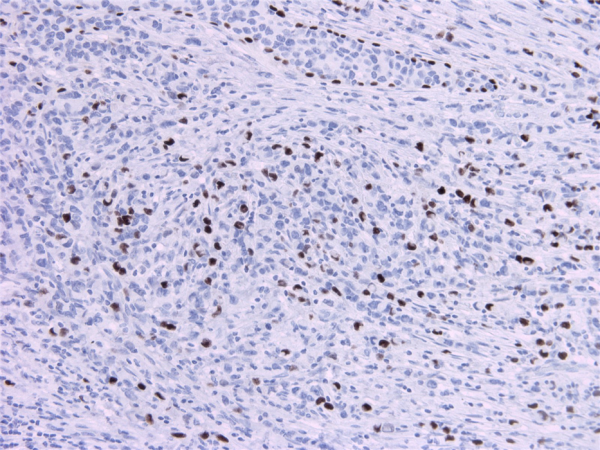Cookie preferences
This website uses cookies, which are necessary for the technical operation of the website and are always set. Other cookies, which increase the comfort when using this website, are used for direct advertising or to facilitate interaction with other websites and social networks, are only set with your consent.
Configuration
Technically required
These cookies are necessary for the basic functions of the shop.
"Allow all cookies" cookie
"Decline all cookies" cookie
CSRF token
Cookie preferences
Currency change
Customer-specific caching
FACT-Finder tracking
Individual prices
Selected shop
Session
Comfort functions
These cookies are used to make the shopping experience even more appealing, for example for the recognition of the visitor.
Note
Show the facebook fanpage in the right blod sidebar
Statistics & Tracking
Affiliate program
Conversion and usertracking via Google Tag Manager
Track device being used
| Item number | Size | Datasheet | Manual | SDS | Delivery time | Quantity | Price |
|---|---|---|---|---|---|---|---|
| OPT-BSH-3006-100 | 100 µl | - |
10 - 14 business days* |
290.00€
|
|||
| OPT-BSH-3006-1 | 1 ml | - |
10 - 14 business days* |
790.00€
|
If you have any questions, please use our Contact Form.
You can also order by e-mail: info@biomol.com
Larger quantity required? Request bulk
You can also order by e-mail: info@biomol.com
Larger quantity required? Request bulk
The p63 gene is a homologue of the p53 tumor suppressor gene. Like p53, p63 contains a... more
Product information "Anti-P63"
The p63 gene is a homologue of the p53 tumor suppressor gene. Like p53, p63 contains a transactivation (TA) domain induce the transcription of target genes, a DNA binding domain, and an oligomerization domain (OD), used to form tetramers. In contrast to p53, the p63 gene encodes for at least six major isotypes. Three isotypes (TAp63alpha, TAp63beta, and TAp63gamma) contain the transactivating (TA) domain and are able to transactivate p53 report genes and induce apoptosis. In contrast, the other three isotypes (deltaNp63alpha, deltaNp63beta, deltaNp63gamma) are transcribed from an internal promoter localized within intron3, lack the TA domain, and act as dominant-negatives to suppress transactivation by both p53 and TAp63 isotypes. p63 is highly expressed in the basal cells of the epithelium significant for proper limb outgrowth and morphogenesis.4 In differentiating tissues, p63 is crucial for maintaining the stem cell identity of the basal cells, and is indispensable for correct development of the skin as well as the limb. p63-deficient mice lack all squamous epithelia and their derivatives, including hair, whiskers, teeth, as well as mammary, lacrimal, and salivary glands.Tissue specificity: Widely expressed, notably in heart, kidney, placenta, prostate, skeletal muscle, testis and thymus, although the precise isoform varies according to tissue type. Progenitor cell layers of skin, breast, eye and prostate express high levels of DeltaN-type isoforms. Isoform 10 is predominantly expressed in skin squamous cell carcinomas, but not in normal skin tissues Control: Tonsil, prostate. Protein function: Acts as a sequence specific DNA binding transcriptional activator or repressor. The isoforms contain a varying set of transactivation and auto-regulating transactivation inhibiting domains thus showing an isoform specific activity. Isoform 2 activates RIPK4 transcription. May be required in conjunction with TP73/p73 for initiation of p53/TP53 dependent apoptosis in response to genotoxic insults and the presence of activated oncogenes. Involved in Notch signaling by probably inducing JAG1 and JAG2. Plays a role in the regulation of epithelial morphogenesis. The ratio of DeltaN-type and TA*-type isoforms may govern the maintenance of epithelial stem cell compartments and regulate the initiation of epithelial stratification from the undifferentiated embryonal ectoderm. Required for limb formation from the apical ectodermal ridge. Activates transcription of the p21 promoter. [The UniProt Consortium]
| Keywords: | Anti-p40, Anti-p63, Anti-KET, Anti-p51, Anti-CUSP, Anti-p73L, Anti-TP63, Anti-Tumor protein 63, Anti-Tumor protein p73-like, Anti-Transformation-related protein 63, Anti-Chronic ulcerative stomatitis protein, Anti-Keratinocyte transcription factor KET |
| Supplier: | Optibodies |
| Supplier-Nr: | BSH-3006 |
Properties
| Application: | IHC (paraffin) |
| Antibody Type: | Monoclonal |
| Clone: | BSR6 |
| Conjugate: | No |
| Host: | Rabbit |
| Species reactivity: | human, mouse |
Database Information
| KEGG ID : | K10149 | Matching products |
| UniProt ID : | Q9H3D4 | Matching products |
| Gene ID : | GeneID 8626 | Matching products |
Handling & Safety
| Storage: | +4°C |
| Shipping: | +4°C (International: +4°C) |
Caution
Our products are for laboratory research use only: Not for administration to humans!
Our products are for laboratory research use only: Not for administration to humans!
You will get a certificate here
Viewed











